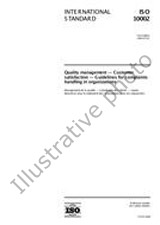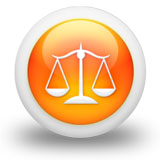We need your consent to use the individual data so that you can see information about your interests, among other things. Click "OK" to give your consent.

ISO/IEC/GUIDE 98-4-ed.1.0
Uncertainty of measurement -- Part 4: Role of measurement uncertainty in conformity assessment
Translate name
STANDARD published on 19.11.2012
| Availability | Sold out |
| Price | ONREQUEST excl. VAT |
| ON REQUEST |
The information about the standard:
Designation standards: ISO/IEC/GUIDE 98-4-ed.1.0
Publication date standards: 19.11.2012
SKU: NS-940020
The number of pages: 49
Approximate weight : 147 g (0.32 lbs)
Country: International technical standard
The category - similar standards:
Annotation of standard text ISO/IEC/GUIDE 98-4-ed.1.0 :
ISO/IEC Guide 98-4:2012 provides guidance and procedures for assessing the conformity of an item (entity, object or system) with specified requirements. The item might be, for example, a gauge block, a grocery scale or a blood sample. The procedures can be applied where the following conditions exist: the item is distinguished by a single scalar quantity (a measurable property) defined to a level of detail sufficient to be reasonably represented by an essentially unique true value; an interval of permissible values of the property is specified by one or two tolerance limits; the property can be measured and the measurement result expressed in a manner consistent with the principles of the GUM, so that knowledge of the value of the property can be reasonably described by (a) a probability density function, (b) a distribution function, (c) numerical approximations to such functions, or (d) a best estimate, together with a coverage interval and an associated coverage probability. The procedures developed in this document can be used to realize an interval, called an acceptance interval, of permissible measured values of the property of interest. Acceptance limits can be chosen so as to balance the risks associated with accepting non-conforming items (consumers risk) or rejecting conforming items (producers risk). Two types of conformity assessment problems are addressed. The first is the setting of acceptance limits that will assure that a desired conformance probability for a single measured item is achieved. The second is the setting of acceptance limits to assure an acceptable level of confidence on average as a number of (nominally identical) items are measured. Guidance is given for their solution. This document contains examples to illustrate the guidance provided. The concepts presented can be extended to more general conformity assessment problems based on measurements of a set of scalar measurands. The audience of this document includes quality managers, members of standards development organizations, accreditation authorities and the staffs of testing and measuring laboratories, inspection bodies, certification bodies, regulatory agencies, academics and researchers.
We recommend:
Updating of laws
Do you want to be sure about the validity of used regulations?
We offer you a solution so that you could use valid and updated legislative regulations.
Would you like to get more information? Look at this page.



 Cookies
Cookies
